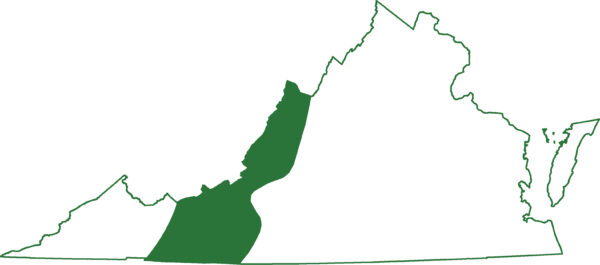Fact File
Scientific Name: Plethodon wehrlei
Classification: Amphibian
Size: Up to 6.5 inches
Identifying Characteristics
The body is dark brown to brownish black with small scattered white spots on the back. Sides have bluish white to yellow spots and blotches. Belly is uniformly gray, except for the throat and chest, which often have white or yellowish markings. Hind feet are more deeply webbed in comparison to most other woodland salamanders.This salamander forages at night for ants, mites, spiders, beetles, and other terrestrial invertebrates.
Diet
This salamander forages at night within low vegetation for ants, mites, spiders, beetles, and other terrestrial invertebrates.
Distribution:
In Virginia, this species occurs from the Blue Ridge Mountains in Floyd County northward to Highland County. An isolated population also occurs in Tazewell County. Primarily inhabits forested hillsides and mountainous areas, but also occurs in moist rock outcrops and caves.

Did You Know?
In 2019, the Blacksburg Salamander (P. jacksoni) of the Wehrle’s Salamander complex was proposed for species recognition. In Virginia, it is only known to occur in Montgomery County.
Role in the Web of Life
Active on the surface from March to October, except at higher elevations where the activity period doesn’t begin until May. Mating occurs in the fall and spring with females laying 7–24 eggs in March or April.
Last updated: January 22, 2024
The Virginia Department of Wildlife Resources Species Profile Database serves as a repository of information for Virginia’s fish and wildlife species. The database is managed and curated by the Wildlife Information and Environmental Services (WIES) program. Species profile data, distribution information, and photography is generated by the Virginia Department of Wildlife Resources, State and Federal agencies, Collection Permittees, and other trusted partners. This product is not suitable for legal, engineering, or surveying use. The Virginia Department of Wildlife Resources does not accept responsibility for any missing data, inaccuracies, or other errors which may exist. In accordance with the terms of service for this product, you agree to this disclaimer.

